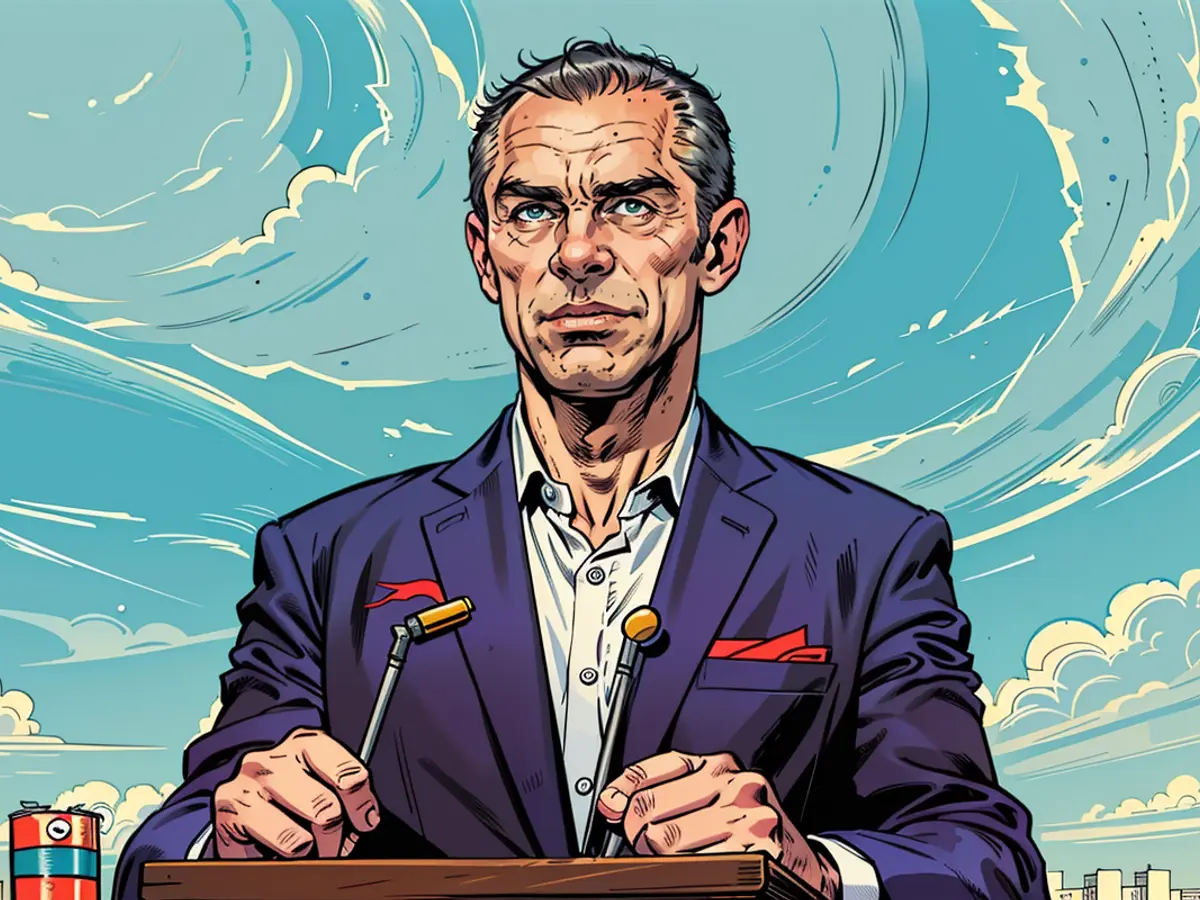Media analysis - "Germany's newspapers label the European elections as complicated and not easily comprehensible to everyone."
"Traffic light parties falter, CDU wins European election, populists gain ground: The European election left a variety of moods in its wake on Sunday evening. As the SPD experienced its worst result to date, parties like the AfD and Sahra Wagenknecht's newly founded Left Party saw a significant rise. This election holds significant implications and may shed light on upcoming elections this year. German newspapers reflect on the outcome of the European election."
"Mannheimer Morgen": "Europe seemed further away than ever in the weeks leading up to this election, with minimal passionate campaigning. Campaign slogans were often one-word and interchangeable: for prosperity, against hate, for freedom, against Putin. Even German Commission President Ursula von der Leyen failed to generate excitement for Europe. She isn't listed on any ballot, as she won't contest a seat in the European Parliament. But she hopes to keep her prominent role in Brussels."
"Neue Osnabrücker Zeitung": "The two leading German parties advocating for a stronger EU as a leader in climate protection and social security, the SPD and the Greens, have suffered significantly. The prospect of Olaf Scholz still having something to bring to the table in the Bundestag election next year is diminishing. This outcome is also a setback for Vice Chancellor Robert Habeck. One can either lament or celebrate the trend towards increased nationalism and less focus on climate protection, which is also present in other nations."
"Südwest Presse" (Ulm): "Europe has chosen, but has Europe truly selected a European Parliament? Many in the polling booths may have been more interested in national politicians than those in Strasbourg and Brussels during this election. European elections often center more around domestic parties than the future of the EU."
"Frankenpost" (Hof): "The Greens now face deflated spirits. "Ouch, ouch, ouch!" After hitting a high point of 20.5% in the previous European election, they have experienced a significant decline in their results - a stunning fall. They need to reevaluate their contradictory, sometimes hard-to-understand climate policy. As their current approach has not garnered the support of the general public, perhaps they should reconsider their approach to climate action."
"Kölner Stadt-Anzeiger": "This election has left everyone unsatisfied. In the next five years, it will become increasingly difficult to maintain the EU as a single entity to tackle global challenges. The electoral defeat is a vote against European solidarity. The national popularity test for the federal government has produced disappointing results. The applause for the traffic light parties has come to an end."
Rhein-Neckar-Zeitung (Heidelberg): "The European Parliament election has yielded a clear victor in Germany. And that person is Friedrich Merz. The CDU leader can now seriously consider running for chancellor. His Union won nearly as many votes as all three traffic light parties combined. This is an impressive victory. And with Armin Laschet's lackluster performance in the previous federal election, Merz's triumph feels that much more significant."
"Nordwest-Zeitung": "In Germany, this European Parliament election had little to do with the EU. It was more of a vote against the traffic light coalition. The party was penalized for its fails to solve pressing issues and to provide support to the people. Notably, the FDP's controversial choices in presenting their lead candidate were not well-received, and the Greens have been reduced to their core supporter base."
"Frankfurter Allgemeine Zeitung": "A European election is not a federal election. Politicians and voters tend to undervalue the importance compared to the EU's actual impact. But a European election is a nationwide vote and offers more insights than local state elections, often used as proxies for the current political zeitgeist. The German result highlights one conclusion: The CDU/CSU has clearly distinguished itself from all other parties."
"Nürnberger Nachrichten": "The rise of pro-Putin figurehead Sahra Wagenknecht, the AfD's advance in the east despite a problematic candidate like Max Krah, the collapse of the traffic light parties, and the Greens' failed reality check in Berlin: The European election outcome conveys several messages from a German standpoint. One of them relates to the CSU: They can still function as a people's party with results of 40%."
"Bremen's Weser-Kurier" reports: The reconciliation with the traffic light coalition is clear - it's not a final decision for the 2025 federal election campaign. Olaf Scholz currently leads opposition leader Friedrich Merz in every survey on who will be the next federal chancellor. There's also history to consider; ahead of the last federal election, trends can shift quickly. However, for this change to happen, the traffic light needs to put their constant bickering aside and tackle upcoming issues with a practical approach over the next 15 months.
Read also:
"Mannheimer Morgen" further discusses the complexities of the European elections, stating that "Germany's role in these elections and the EU as a whole was widely considered complicated, with some suggesting that the lackluster campaigning and single-word slogans may have contributed to a decreased enthusiasm for European unity."
"Nürnberger Nachrichten" highlights the results of the elections in Germany, noting that "despite the complexity and low public engagement in the European elections, Germany's participation demonstrated the importance of EU membership, with Germany's strong showing in the elections reflecting its commitment to the EU and Europe as a whole."








